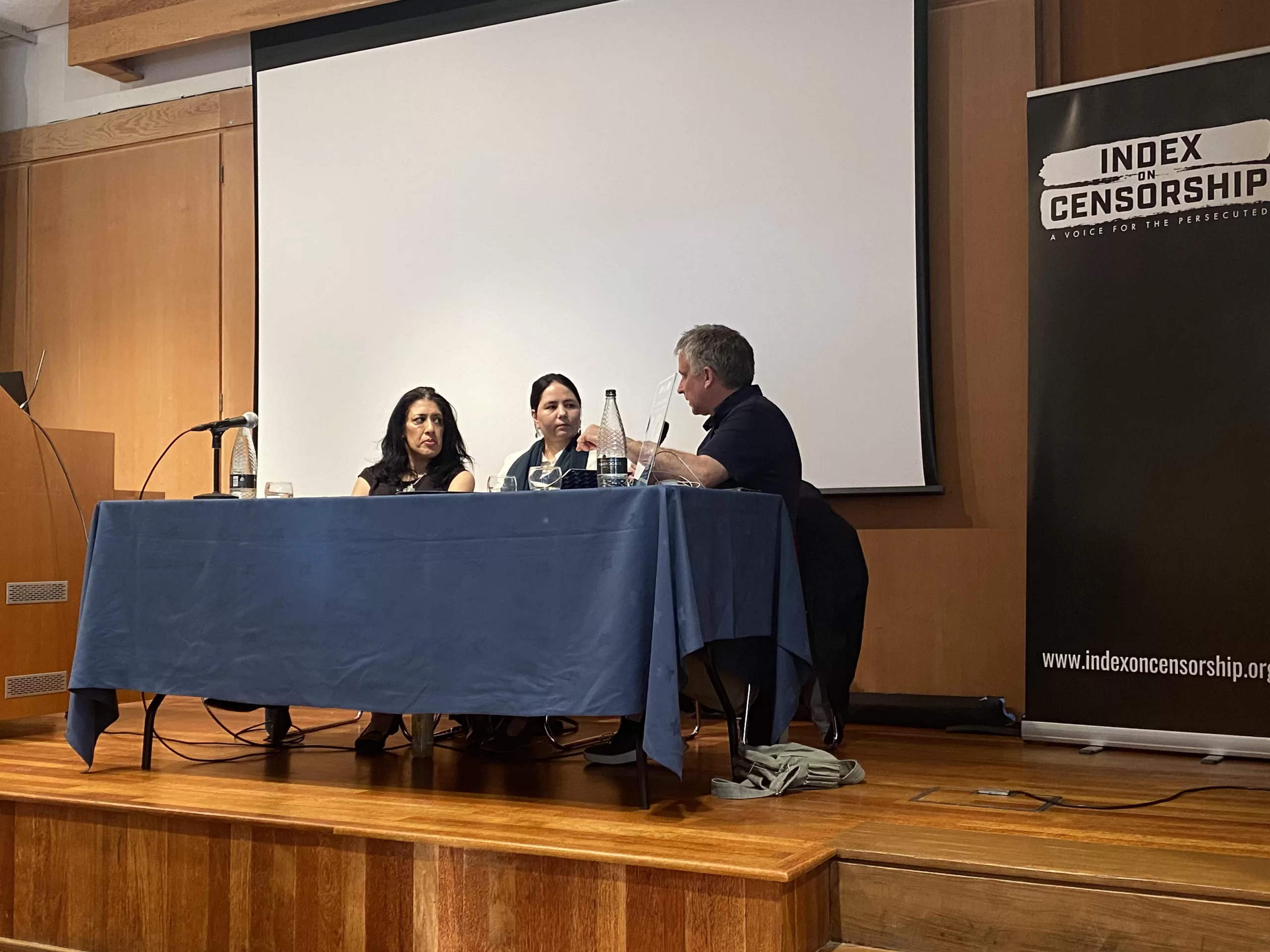A rallying shout for people to write to their MPs and raise awareness of the plight of women and journalists in Afghanistan, and to pressure the government to improve the current conditions of Afghan refugees in the UK, were part of a panel discussion held by Index on Censorship last Thursday.
A Night For Afghanistan was hosted by Index’s Editor-at-large Martin Bright at Somerville College, University of Oxford. Alongside him were Zahra Joya, an exiled Afghan journalist and founder of Rukhshana Media, and Zehra Zaidi, a lawyer and advocate for Action for Afghanistan.
Joya spoke passionately about the plight of Afghan journalists that remain in her homeland. She said: “Their situation is just terrible. There is no independent journalism left after the Taliban takeover, and journalists that do remain face imprisonment and torture.” Referencing her colleagues left in Afghanistan, including those at Rukshana Media who focus on women’s issues in the country, she added: “I see a very big desire and trust from my colleagues in telling the story of marginalised women both from and in my country.”
Discussing the conditions of Afghan refugees in the UK, Zaidi raised the point of those held in hotels with the audience. She said: “All of them, which is about 11,000 people, have been given three months eviction notices. Without alternative accommodation, they are homeless.
“This isn’t just about the Taliban in Afghanistan. This is now about us, our values. Do we still care about human rights and democracy? We must put pressure on the government to support the process of people coming out of the hotels.”
Joya urged people to raise their voices with politicians; to keep the conversation alive and put pressure on the Taliban from outside the country. Speaking of a “shameful silence” about the Taliban’s actions in her country, she asked the audience to imagine such a scenario closer to home. “It is simply a gender apartheid. Imagine one day half of London being told “Sorry, you have to stay at home from now on””, she said. Joya also told a disturbing story about the father of a friend in Afghanistan who sold his kidney to raise funds for his daughter to escape the regime.
Discussing the role of Index, Bright talked about the UK’s government recent scheme to relocate women and journalists from Afghanistan to the UK, suggesting only a very small handful of people were successful in doing so. He added: “We won’t give up on putting pressure on the British government to fulfil the promises made to the Afghan people, but it makes sense for us to work with other countries’ schemes in helping to get people out.” Zaidi was more forthright to the audience in her views of the British government aims regarding Afghanistan:
“They want to forget. It was a failure for them. The UK got beat, and simply took all of the soldiers and systems with them, and fled”, she said.
“They hope we will simply just go away, but we’re not going anywhere.”






